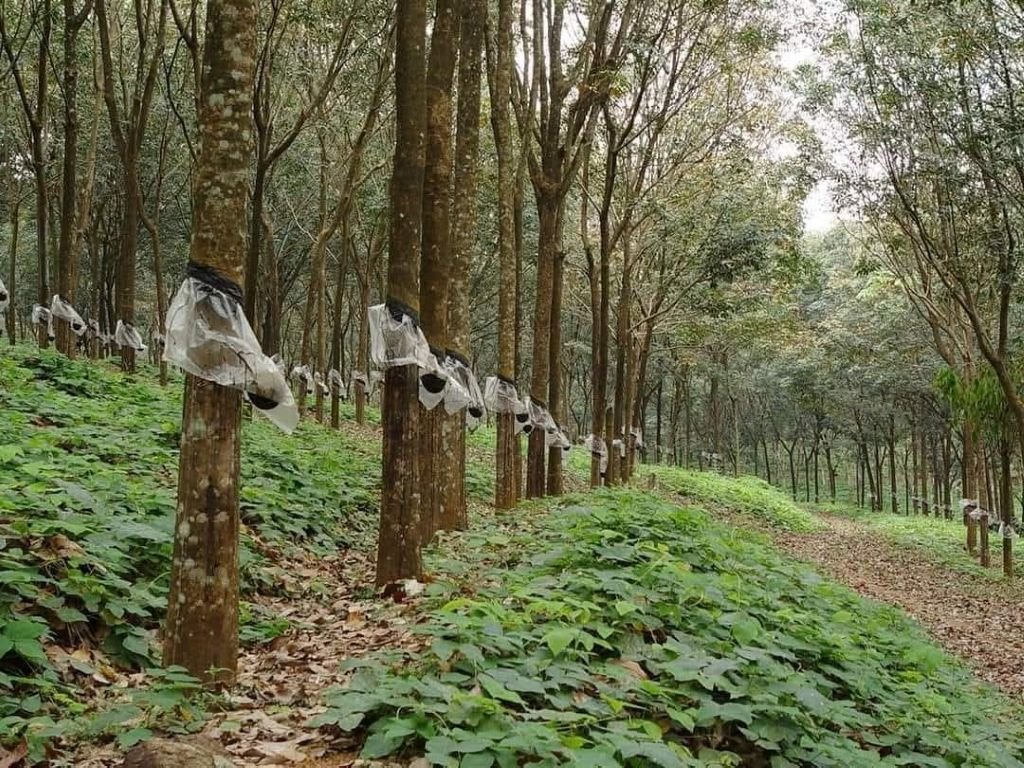The Rubber Board has introduced an extensive geo-mapping initiative across rubber plantations in India to enhance market access for Indian rubber exporters while fostering transparency and sustainability throughout the supply chain. This initiative is designed to ensure compliance with the European Union Deforestation Regulation (EUDR) and to certify natural rubber under the Indian Sustainable Natural Rubber (iSNR) program.
Geo-Mapping to Drive Sustainability and Traceability
With natural rubber classified as an EU-regulated commodity under deforestation free trade rules, the Rubber Board is implementing a large-scale geo-mapping initiative to trace the origin of rubber and ensure compliance. Hyderabad-based Trayambu Tech Solutions (TRST01) has been brought on board to manage the digital mapping, which involves capturing key data such as land ownership, plantation boundaries and total area of rubber holdings.
The program will start in Kerala, focusing on ten key rubber-growing districts before expanding to Tamil Nadu, Karnataka and other major rubber-producing regions. The data collected will be securely stored in a centralized Rubber Board database to maintain confidentiality while ensuring traceability across the supply chain.
EUDR Awareness Campaigns Underway
To support this initiative, the Rubber Board has begun a series of sensitization programs aimed at educating rubber growers and industry stakeholders about EUDR compliance. The first session was inaugurated in Kottayam by M. Vasanthagesan, Executive Director of the Rubber Board, and similar sessions are planned for Thiruvananthapuram and Kozhikode.
These programs are designed to equip plantation owners and rubber producers with a clear understanding of the EUDR requirements and the steps needed to ensure their products remain eligible for export to European markets.
iSNR Certification and Due Diligence
The geo-mapping initiative is a key part of the iSNR certification process, which provides traceability certification to verify the origin of natural rubber. This certification is essential for exporters to secure a ‘due diligence’ certificate, a requirement under EUDR based on risk assessment and legality checks.
Also read: 3F Oil Palm Introduces Drone Technology to Enhance Plantation Monitoring in India
Indian rubber exporters can register on the iSNR platform through the Rubber Board’s website. Upon registration, exporters will have access to critical documents, including traceability certificates, due diligence declarations, and geolocation datasets, helping ensure full compliance with EUDR regulations.
Rubber Board Strengthening India’s Global Market Position
The Rubber Board’s geo-mapping initiative, combined with iSNR certification, is expected to deliver significant advantages to India’s rubber industry. By enhancing supply chain transparency and ensuring compliance with international deforestation-free standards, the program supports sustainable production and strengthens environmental practices.
With improved market access and increased revenue potential for Indian rubber exporters, the initiative positions India’s natural rubber sector for greater competitiveness on the global stage. As the geo-mapping rollout continues across the country, the Rubber Board’s efforts are set to reshape the industry, ensuring long-term sustainability and growth.


